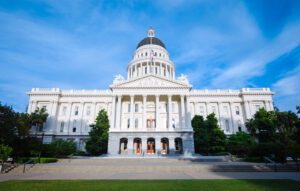
Over the past few years, colleges and their high school partners have been developing and expanding equitable dual enrollment opportunities, particularly through College and Career Access Pathways (CCAP) programs. Dual enrollment also figures prominently in a number of state initiatives such as Golden State Pathways, the Governor’s Roadmap for Community Colleges and Vision 2030. Yet barriers to equitable access and smooth implementation still exist. For California to reach its goals to increase college completion and close historic equity gaps in postsecondary access and success, change is urgently needed.
AB 359 (Holden) would go a long way toward making this happen. It proposes major reforms to CCAP dual enrollment, expanding opportunities for students to take advantage of CCAP and removing barriers faced by colleges and districts in implementation. In effect, AB 359 would:
-
- Open the benefits of CCAP dual enrollment to all students, while prioritizing enrollment and outreach for students who may not already be college bound or who are underrepresented in higher education.
- Remove the requirement for students to receive a principal’s recommendation to participate in dual enrollment.
- Remove paperwork barriers for students by authorizing, as part of CCAP agreements, that a dual enrollment student would only need to complete one application for the duration of their attendance at the college.
- Allow colleges to provide physical education courses to students in CCAP dual enrollment.
- Simplify reporting requirements for colleges and high schools entering into CCAP partnerships.
- Expand partnership opportunities to include more community colleges, and define a process for schools to follow in seeking courses from colleges outside their local service area.
- Enable colleges to offer courses open only to high school students—at the college campus, at the high school, or online using either synchronous or asynchronous modalities.
- Enable students to earn dual credit (in other words, require that students receive high school credit for successfully completed college courses beginning in 2030-31).
The bill was recently passed by the Assembly and is under consideration by the California Senate. It was authored by Assemblymember Chris Holden (D-Pasadena) and co-authored by Assemblymember Al Muratsuchi (D-Torrance).
In addition, AB 2019, authored by Assemblymember Vince Fong (R-Bakersfield), would expand the definition of early and middle college high schools to include early and middle college programs within a high school. It would also exempt a student enrolled in an early college or middle college program or a CCAP partnership from the 240-minute minimum school day, if they are also enrolled in a community college. For such students, the minimum school day would be 180 minutes. This change would provide more flexibility and help colleges and schools as they work together to schedule dual enrollment classes.